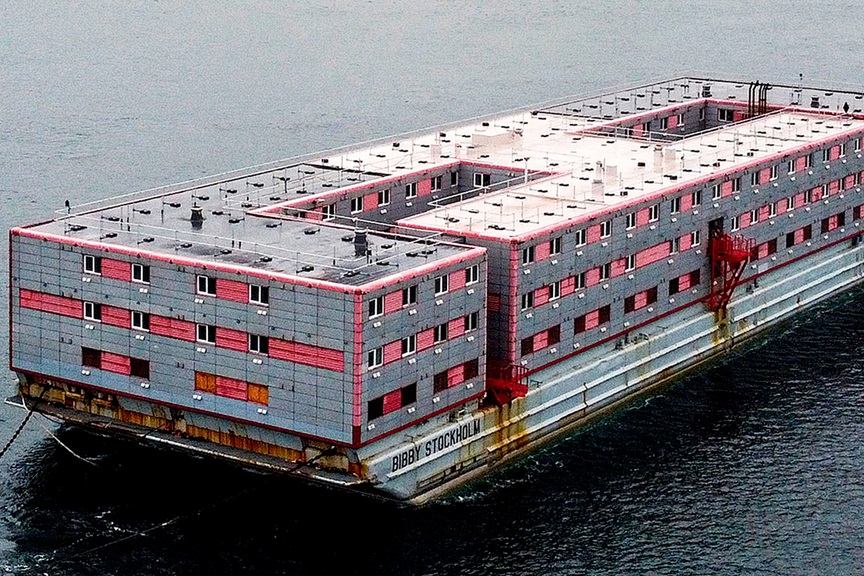The sending of asylum seekers to that ship without a motor, docked in the port of the island of Portland, southeast of England, since mid-July, is part of the executive’s plan to reduce the costs of accommodation and maintenance.
Belonging to the maritime operations and shipping company Bibby Line, the ship welcomes people who arrive in the European country through the English Channel and, initially, will accommodate a group of 50 men awaiting their asylum process in the United Kingdom.
The barge is a three-story building, with a length of 93 meters and space for 506 guests, more than double the capacity of the ship when it was the shelter for workers of offshore energy companies.
Precisely, the modification of the 222 original cabins, the incorporation of bunk beds and the use of common areas for rooms, originated the rejection of at least 50 non-government organizations and individual activists.
Detractors considered this government plan cruel and inhumane for, among other reasons, the lack of fire safety measures for such a large number of people and prison-like detention conditions.
Added to this, the decision has the discontent of local administrations and residents of the island, who assess the possible negative impact on public services in a town with around 13,000 inhabitants.
ef/ro/dgh










